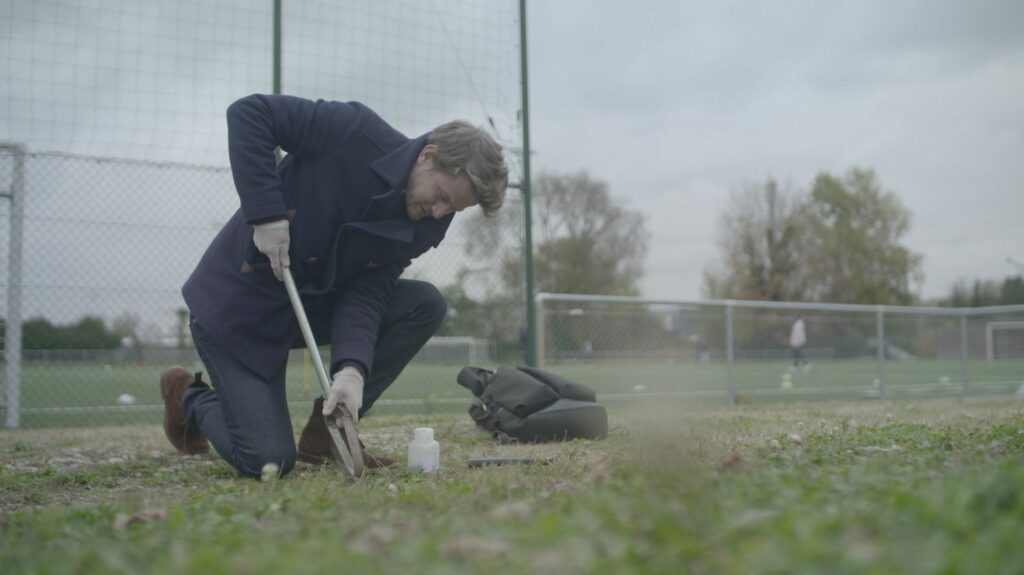The conclusion is clear. Part of the town of Pierre-Bénite (Lyon metropolis), where an Arkema chemical plant is located, is « severely contaminated by perfluorines (PFAS) », toxic pollutants with serious and varied effects on health. This is the analysis, presented on Tuesday May 10, by Dutch chemistry professor Jacob de Boer at the end of a campaign of air, soil, breast milk, Rhône water and drinking water samples carried out by journalist Martin Boudot for the program « Vert de rage » on France 5, in collaboration with « Envoyé Spécial » in an issue broadcast on Thursday May 12 on France 2. The professor from the Free University of Amsterdam recommends « the closure and sanitation of certain areas such as the stadium and better cleaning of drinking water »as well as an end to PFAS releases.

Nicknamed the « eternal pollutants », PFAS, a family that includes different products, are distinguished by their ability to persist in the environment and by their toxicity. The chemical industry uses them for their non-stick, stain-resistant, fire-retardant, water-repellent or grease-repellent properties. They are found in products as diverse as stoves, raincoats, make-up or pizza boxes. They are at the heart of the film Dark Waterswhich tells the fight of an American lawyer against the firm DuPont which produces Teflon. « Each perfluorinated substance has a different toxic effect. Some cause liver cancer, bowel cancer. They can even have an effect on the health of children at birth. But the most worrying thing is that they can have a detrimental effect on the immune system »explains Jacob de Boer, in favor of a « total ban on these pollutants ».
In Pierre-Bénite, the Arkema factory, which has known different owners, has used PFOA since the 1960s and until 2016. This carcinogenic perfluorinated component, the toxicity of which is described by the National Institute for Research and Safety, has been banned since 2020 in the European Union. Other PFAS, such as PFNA and 6:2 FTS, have been or are still used at the Pierre-Bénite site. In this same industrial zone, a Daikin factory, installed in 2002, uses PFHxA to produce its synthetic rubbers.
« Perfluorinated contamination is global and particularly in Europe. We have discovered dramatic effects of these pollutants on the environment and on human beings. »
Jacob de Boer, professor of chemistryto « Green with Rage »
Products found in alarming quantities in the environment of the industrial site. In the air, the PFOA levels measured by the team are up to eight times higher than the UN reference values. In the soil, the PFUnDA levels exceed the Dutch standards by 83 times (249 micrograms/kg against 3 μg/kg), used as a reference for lack of French regulations on this point. In the water discharged by the plant into the Rhône, the PFAS rate is 36,414 times higher than that found in the river upstream (364,144 nanograms/litre against 10 ng/l).

All tap water samples exceed European standards which are soon to come into force in France (more than 200 ng/l on three catchments against 100 ng/l). And the average of PFAS found in breast milk is twice as high as in Dutch women (160.7 ng/kg versus 70.7 ng/kg). For Professor De Boer, this situation, in particular on drinking water, « requires the immediate attention of the authorities ».
The analyzes are so alarming that the Minister for Ecological Transition, Barbara Pompili, wanted to react in person. “When you told us that you had taken these samples, we immediately launched an investigation into this company”she explains to the journalist, specifying that this work is « In progress ». For the Minister, it takes a « very rapid banning of the PFAS family at European level ». She also undertakes to « set standards »in particular on the potability of water.

Contacted by the teams of France Televisions, the Arkema factory minimizes its responsibility. « Some perfluorinated additives which are mainly discussed in your e-mail seem to us to concern former activities on the platform, different from the current production of the Pierre-Bénite site, and may come from many other sources unrelated to industrial activity. of the platform », responds the company to the show. Before the broadcast of the complete investigation of « Vert de rage », a short version will be offered Thursday, May 12 in the magazine « Envoyé Spécial ».

